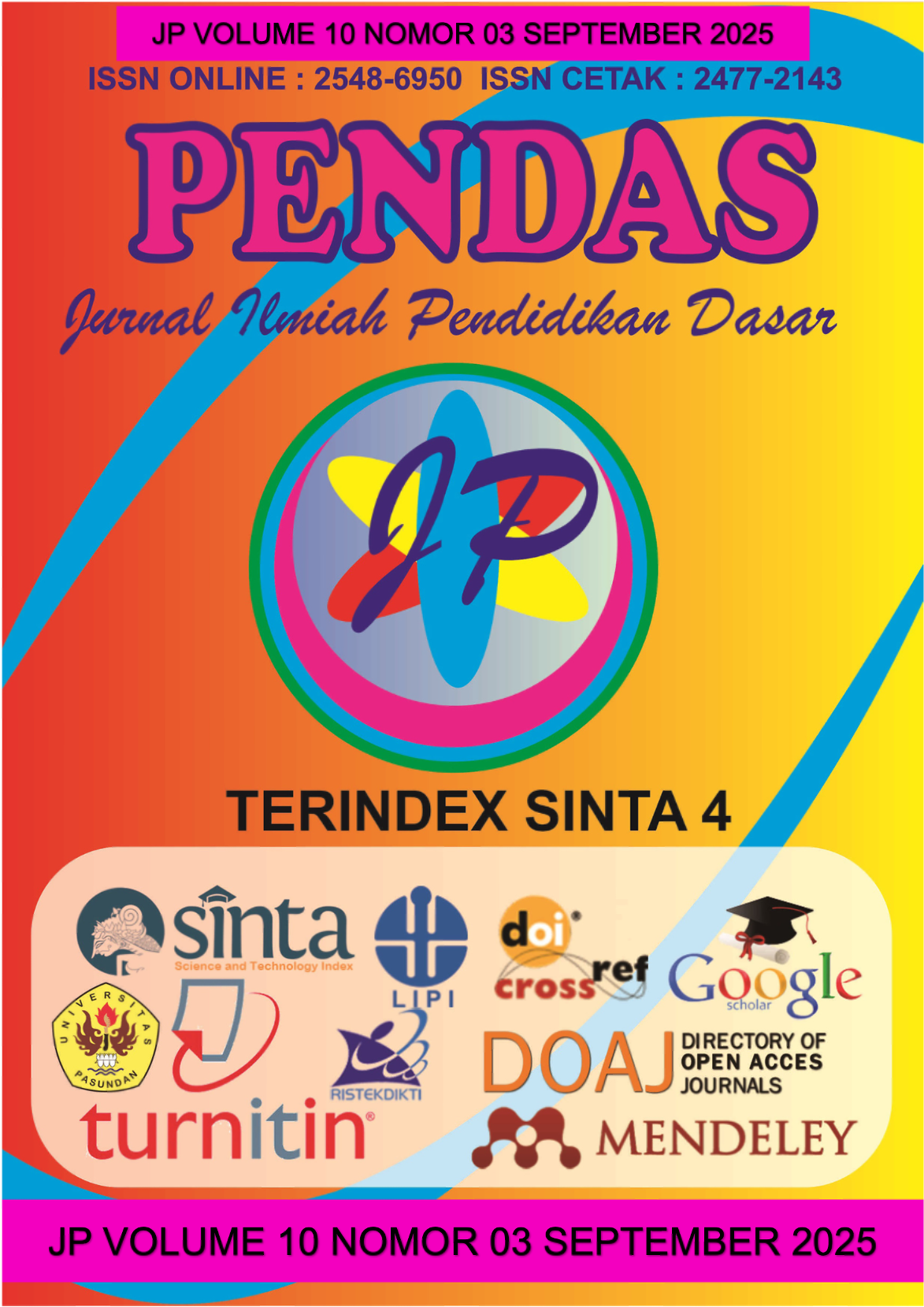ANALISIS PELAKSANAAN GAME EDUKASI KAHOOT PADA PEMBELAJARAN SOSIOLOGI KELAS XII DI SMA ADABIAH 2 PADANG
DOI:
https://doi.org/10.23969/jp.v10i03.33191Keywords:
Implementation, Kahoot Educational Game, Sociology LearningAbstract
This research was motivated by the low student learning outcomes in Sociology at Adabiah 2 High School, particularly in grade XII F8, despite teachers using the Kahoot educational game. The purpose of this study was to analyze the implementation of the Kahoot educational game in Sociology lessons for grade XII. The theory used was Jean Piaget's cognitive theory, which explains mental processes such as thinking, understanding, and remembering in learning. This study employed a qualitative, descriptive approach. The informants were selected using a purposive sampling technique, consisting of one Sociology teacher and six grade XII F8 students. Data were collected through observation, interviews, and documentation studies, then analyzed using the Miles and Huberman model through the stages of data collection, data reduction, data presentation, and conclusion drawing.
The results showed that the implementation of Kahoot in Sociology lessons took place through three main stages. In the planning stage, teachers prepared teaching modules, questions, and supporting materials. During the implementation stage, students demonstrated enthusiasm, actively competed, and were motivated to answer questions quickly and accurately, despite internet network constraints. During the evaluation phase, teachers can directly view student learning outcomes through scores and rankings, which can stimulate student motivation and engagement. Thus, the use of Kahoot has proven effective in creating a fun learning environment, increasing motivation, and helping students better understand the subject matter.
Downloads
References
Adita, Y., Damayanti, L., & Dewi, M.
(2018). Penggunaan media game
edukasi dalam meningkatkan
motivasi belajar siswa. Jurnal
Teknologi Pendidikan, 20(2), 155–
164.Damayanti, D., & Dewi, R. (2021).
Pemanfaatan teknologi digital
dalam pembelajaran abad 21.
Jurnal Pendidikan, 12(1), 45–52.
Desi Pristiwanti, D., Rahman, A., &
Nugraha, R. (2022). Peran
pendidikan dalam pembentukan
karakter bangsa. Jurnal Ilmiah
Pendidikan, 6(2), 123–131.
Lestari, N., & Masitah, N. (2022).
Pengaruh penggunaan aplikasi
Kahoot terhadap motivasi belajar
siswa. Jurnal Inovasi Pendidikan,
14(3), 225–233.
Mardiana, S., Putri, A., & Syafri, R.
(2024). Kahoot sebagai media
evaluasi pembelajaran interaktif.
Jurnal Teknologi Pendidikan,
18(1), 89–97.
Najuah, N., Ramadhani, A., & Siregar,
F. (2022). Efektivitas game
edukasi dalam meningkatkan
hasil belajar siswa. Jurnal
Pendidikan, 17(2), 112–120.
Nugraha, A., Fadillah, R., & Yuliani, S.
(2023). Tantangan penerapan
pembelajaran berbasis teknologi
di sekolah menengah. Jurnal
Inovasi Pendidikan, 10(4), 301–
310.
Rahman, A., Pristiwanti, D., &
Nugraha, R. (2022). Pendidikan
dalam perspektif Undang-Undang
Nomor 20 Tahun 2003. Jurnal
Ilmiah Kependidikan, 8(1), 15–24.
Sulistiyawati, E., Pratiwi, I., & Lestari,
D. (2021). Kahoot sebagai media
interaktif dalam pembelajaran.
Jurnal Pendidikan, 13(2), 77–85.
Downloads
Published
Issue
Section
License
Copyright (c) 2025 Pendas : Jurnal Ilmiah Pendidikan Dasar

This work is licensed under a Creative Commons Attribution 4.0 International License.














































